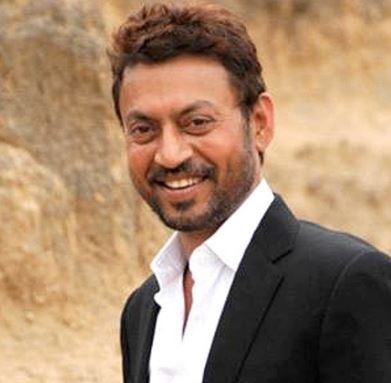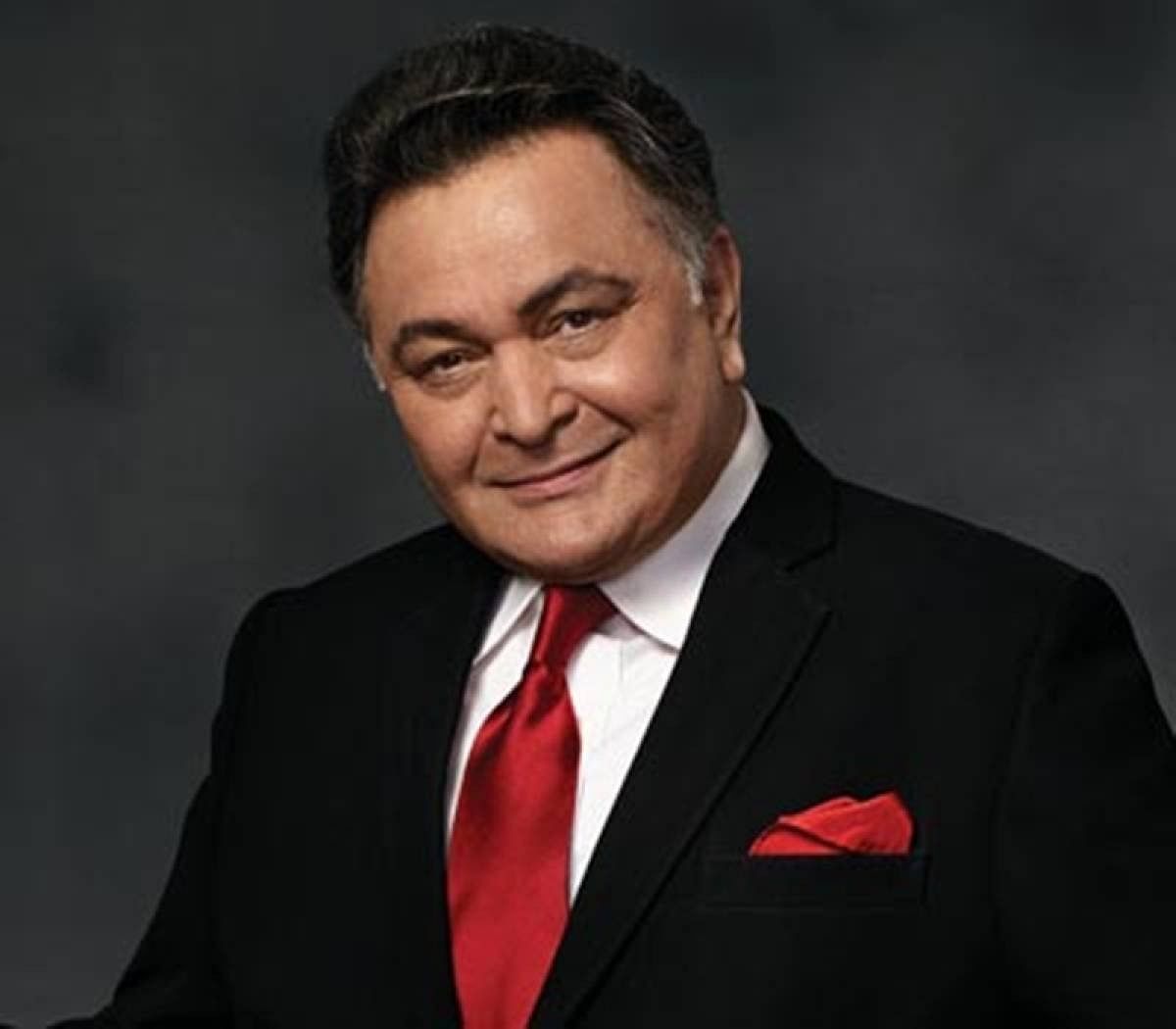Parsi Times Film Critic, Hoshang K Katrak pays a tribute to both these power-houses of talent and charisma, even as the Bollywood and World Cinema fraternity try to cope with the shocking heart-break.
Irreplaceable Irrfan
7 January, 1967 – 29 April, 2020 |
I’m frequently asked what ‘Crossover Films’ mean. Is it just the language content? (But more of that later.) When the distressing news of Irrfan Khan’s passing poured in on 29th April, my mind wandered to the other actor – Om Puri – who had done India proud in crossover films, and who had passed away three years ago on 6th January, coincidentally, just a day before Irrfan’s birth date.
I first met Irrfan in October 2011, during the closing night party of the 13th edition of MAMI. I was with historian, journalist and author Rafique Baghdadi along with senior film critic, Rashid Irani. Both of them knew Irrfan well. He was in a rush but when I asked Rafique to request the actor for a photo with him, he patiently obliged, putting his arm around my shoulder!
Irrfan’s rise was spectacular, but not meteoric. Though he had the distinction of having his first film (Salaam Bombay, 1988) nominated for an Oscar, he tasted major success only 13 years later, in a British production – The Warrior (2001). In the interim, he kept himself busy with television and films. Hits such as ‘Maqbool’, ‘Paan Singh Tomar’ (for which he won the National Film Award), ‘Haider’, ‘Piku’, ‘Talwar’ followed. He also travelled westward to act in ‘The Amazing Spiderman’, ‘Jurassic World’, ‘Inferno’ (with Tom Hanks). Just two of his films – ‘Slumdog Millionaire’ and ‘Life of Pi’ have garnered 12 Oscars!
His droopy eyelids and a languid dialogue delivery belied unmatched acting brilliance. The intensity of his voice was his main asset in an output of around 102 feature films and 25 serials. A bouquet of awards and accolades – national and international – were the result. Irrfan (as he preferred to be known) excelled in crossover films – which, in this writer’s opinion, are those which are multicultural productions, multilingual, have foreign actors and importantly, are welcomed by the NRIs.
Cricket’s loss was cinema’s gain. Although being selected for the Under-23 CK Nayadu Tournament, he didn’t have the money (Rs. 300) required to travel from Jaipur to Ajmer. In 1984, he enrolled in the National School of Drama (NSD) where he met Sutapa Sikdar, his future wife, with whom he has two sons.
A malignant neuroendocrine tumour, detected in 2018, led him to the US for treatment. The nation followed his health reports with great concern. He returned to complete ‘Angrezi Medium’, his last film, released on 13th March, barely a fortnight before the lockdown was announced.
His highest grossing Hindi film remains the 2017 ‘Hindi Medium’, whose review appeared in PT of 20th May, 2017. I’m tempted to reprint a couple of lines from my review ‘…at times you get the distinct feeling that the film is a vehicle to showcase the powerhouse talent that is Irrfan Khan: your gaze is riveted on him whenever he’s on screen, no matter who’s got the lines…’
Both Rafique and Rashid recall Irrfan, when he was acting in Govind Nihalani’s, ‘Drishti’ around 1989. Rafique remembers Irrfan as unassuming, quiet and hardworking. Rashid, who found him extremely polite, shares “In my opinion, Irrfan was simply the best actor of this generation, just three films bearing testimony to this – Asif Kapadia’s ‘The Warrior’ (2001); Mira Nair’s ‘The Namesake’ (2006), scripted by Sooni Taraporewala; and Ritesh Batra’s ‘The Lunchbox’ (2013).
Irrfan’s graph, which had curved upwards after ‘The Warrior’, unfortunately flattened, forever, on 29th April, 2020. Rest in Peace, Irrfan. Your talent was unique and will be sorely missed.
Unforgettable Rishi Kapoor
4 September, 1952 – 30 April, 2020 |
No sooner had the nation got around to accepting the fact that Irrfan Khan was no more, than news filtered in of the passing away of the middle son of the late Raj Kapoor. Hailing from the First Family of Indian cinema, the Kapoor khaandaan, Rishi has been one of the most remarkable figures of their generations.
Even before he was three years old, his father enticed him and his siblings to do a cameo in ‘Shri 420’, walking in the studio rain in new raincoats! His next tryst in front of the camera was in ‘Mera Naam Joker’ (1970), playing the teenaged Raju. Constant leave from his Campion School for film shootings got him rusticated. It was only after personal pleading from his father that he was readmitted.
From Raju, to playing the lovestruck Raja in ‘Bobby’, was just a matter of three years, though the film’s happy ending failed to translate it to real life – with Dimple getting hitched to superstar Rajesh Khanna overnight. Rishi Kapoor was the new overnight sensation. From ‘Zehreela Insaan’ (1974) to ‘Dhan Daulat’ (1980, the year he married Neetu Singh), he did nine films with his future wife, and incidentally, the original choice for ‘Bobby’. With the phenomenal success of the film, his screen names often started with ‘R’ – Rajan, Rohit, Rajesh, Ravi.
Apart from ‘Prem Rog’, ‘Sagar’ and ‘Chandni’ in the ’80s, the decade wasn’t particularly kind to him. But with ‘Deewana’ and ‘Damini’, he was able to bounce back in the ’90s. I remember music director Nadeem telling me how enamoured Rishi was with the music of the last two films, particularly ‘Deewana’. Apart from Uncle Shammi, I wonder whether the Hindi film industry has seen a more graceful dancer (‘Khel Khel Mein’, ‘Karz’, ‘Amar Akbar Anthony’, ‘Hum Kisise Kum Nahin’). He was so well-placed professionally now that he could refuse Yash Chopra’s offer to play the negative role in ‘Darr’ (1993), saying, “I’m a romanticist!” At one stage he prided himself as the actor who had launched the careers of the maximum number of heroines! But with ‘Raju Chacha’ (2000), he started doing the fatherly roles.
In September 2018, he was diagnosed with leukemia. After almost a year of treatment in New York, during which time he remained his usual cheerful self, he returned to India and completed most of his assignments.
The first time I met Rishi was in the mid-’80s – he was returning from London with wife Neetu and Ranbir, who was still a toddler. Throughout the flight, the Kapoors’ passion for food and liquor, especially the latter, was evident. The last time I met him was in the post-release party of ‘Mulk’, just before he embarked for his treatment.
With ‘Aa Ab Laut Chalen’, in 1999, Rishi could finally realise his cherished dream of turning director – in the 21st and last film of the R K banner. Having acted in more than 150 films, he’s done more than a few multi-starrers, with the solo lead in nearly 50 films. Romance and comedy were his forte. With five Filmfare trophies, including the Lifetime Achievement Award in 2008, Rishi Kapoor has proved to be the most successful of the Kapoor clan, now in its fifth generation.
With Amar (Vinod Khanna) having departed on 27th April, 2017 (almost three years to the date), only Anthony (with whom he’s done at least six films including ‘Kabhi Kabhi’, ‘AAA’ and ‘Naseeb’) remains. More recently they were seen in ‘102 Not Out’, where Rishi matched Amitabh in histrionics. Till ‘Jab Tak Hai Jaan’, the ‘Shreeman Aashiq’ remained a ‘Bade Dilwala’! RIP Rishi! You will certainly be missed.
- Film Review: Four on Eleven: The Fading Glory Of Parsi Cricket - 5 April2025
- Sau Saal Pehle… Celebrating Mohammed Rafi’s Birth Centenary - 21 December2024
- Parsee Gym Retains Supremacy In 7th Late Manek Golvala T10 Cricket Cup - 13 April2024


